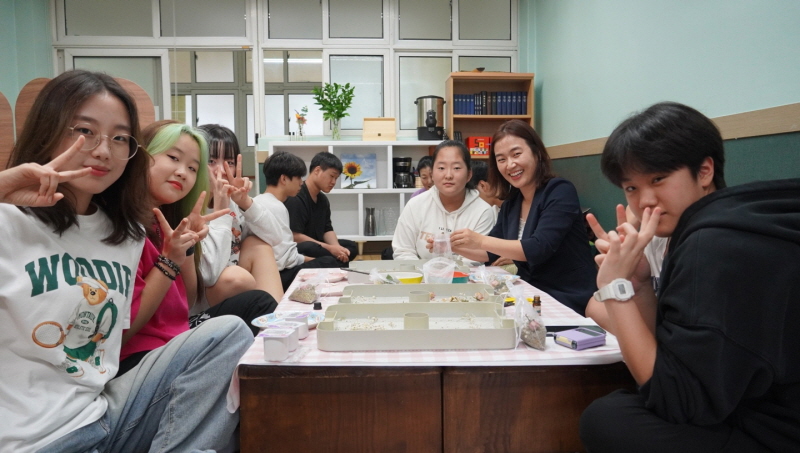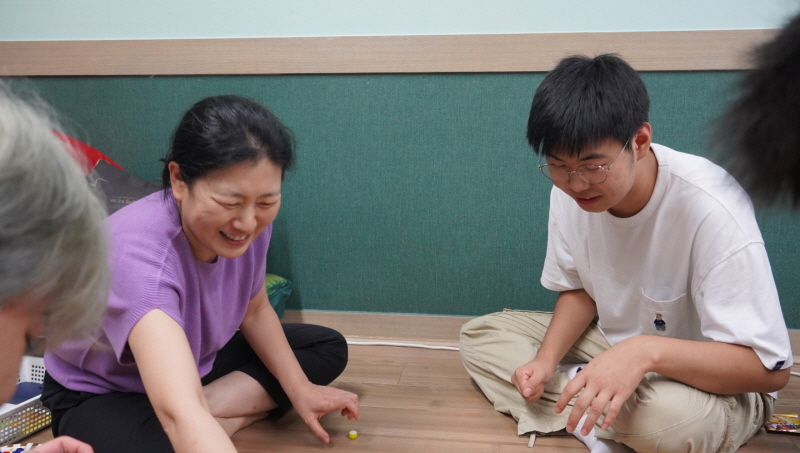[Second in a series]
“I hope there will be no more human discrimination. During COVID-19, I was bullied simply because I came from China.”
Soo-young Park (alias, 19), the daughter of a North Korean defector born in China, shared her story with the JoongAng Ilbo, a leading Korean newspaper affiliated with the Korea Daily. She described her difficult experiences at regular South Korean schools before transferring to Yeomyung School, an alternative school for North Korean teenage defectors in Gangseo-gu, Seoul. We met with her on July 9 at the school to discuss the hardships she faced.
Reflecting on her time in a regular school from elementary through the first year of middle school, she lamented, “I was always alone.” Her use of the term “human discrimination” instead of simply “discrimination” conveyed the harsh reality of her experience at regular school.

As of April last year, over 70% of North Korean defector students in South Korean elementary, middle, and high schools were born in third countries. However, for these students, school often represents a place of discrimination and exclusion. Even among the children of North Korean defectors, those born outside North Korea face ostracism from their peers born in the North.
Soo-young transferred to Yeomyung School for similar reasons. “At first, everyone was friendly, but once they realized I came from abroad and was older, they treated me differently,” she said. “Kids who acted like bullies would suddenly come up to me, saying ‘Hey, you came from there, right?’ trying to pick fights.”
[Children of North Korean defectors born in third countries: ‘No place to call home’]
Most North Korean defector students born in third countries are children of North Korean defector mothers and Chinese fathers. They often accompany their mothers to South Korea shortly after birth or join them later, once the mothers have settled. The language barrier is a significant challenge they face.
Soo-young admitted that the standard education curriculum was overwhelming at first. “When group activities were assigned, I was left out because I couldn’t communicate,” she sighed, “It was incredibly difficult to keep up.” She added, “I couldn’t even tell my mom about my struggles because I didn’t want to worry her.”
Another defector student, Jung-ah Lee (alias, 18), also attending Yeomyung School after transferring from a regular school, shared similar experiences. “During group activities, each member had roles, but I couldn’t follow along,” she said. “Other students would say, ‘Why aren’t you doing it right!’”
Another defector student, Eun-ah Seo (alias, 15), said, “When I smiled because I didn’t know what to do, they asked, ‘Why are you laughing?’”
These students often felt frightened and would burst into tears when reminded of these events.
A report published by the Korea Educational Development Institute in November last year contained similar cases. A sixth-grade boy who lived in China until he was five said, “I was always passive because I lacked confidence in the language, affecting my relationships and studies.” He lamented that one-on-one Korean tutoring and watching YouTube were his only ways to learn Korean.

The report highlighted that for student A, both his Chinese father’s and North Korean mother’s backgrounds were sources of shame. “A, aware of the negative perceptions of China in Korean society, would cover his father’s mouth in public to stop him from speaking Chinese,” it stated.
Bullying of third-country-born North Korean defector students remains an unresolved issue. Myung-sook Cho, the principal of Yeomyung School, pointed out, “They get teased as ‘Chink’ for not speaking Korean well and for coming from China, which deeply hurts them. They are ostracized in China for being children of defectors and in Korea for coming from China.”
Moreover, unlike students born in North Korea, third-country-born North Korean defector students are not recognized as defectors, excluding them from various educational expenses and scholarship support. Additionally, there are insufficient measures to address the educational disruption that occurs during the entry process into their country.
BY HYUNJU PARK, YOUNGNAM KIM [park.hyunju@joongang.co.kr]




